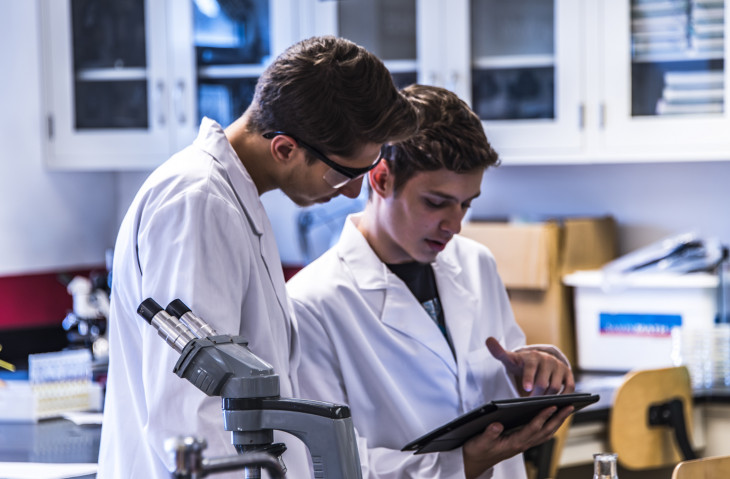Immunohematology technologists or blood bank technologists are responsible for collecting, preparing and typing blood and its components necessary for transfusions. Typically, these technologists require a bachelor's degree. A post secondary certificate or an associate's degree is common for technicians. Certain locations require that technicians and technologists be licensed.
Education & Training
Hospitals and universities offer a variety of technology programs. A bachelor's degree in life sciences or medical technology is normally required for the majority of entry-level jobs.
Those taking a bachelor's degree program in medical laboratory technology take the following studies: biology, statistics, chemistry, mathematics and microbiology. Additional classes that are helpful include: education, management and clinical laboratory skills.
A hospital based program that students work on during their senior year of college may include many of these courses. Graduates who meet a program's prerequisites and who have majored in different sciences may be eligible for applying to a medical laboratory science program if they previously completed chemistry and biology.
There are associate's degrees available in clinical laboratory science. Many medical laboratory technicians often choose this route. There are a limited amount of 1 year certificate programs offered at hospitals for individuals who have obtained their degree in a similar field, such as nursing. Medical laboratory technicians may also find certificate programs available through technical and vocational schools as well as the Armed Forces. Technician studies address the practical and theoretical aspects of each of the main laboratory disciplines.
High school students who pursue a career in the medical laboratory sciences ideally should take the following classes: mathematics, biology and chemistry.
Licenses, Certifications, and Registrations
Certain places require that laboratory personnel be registered or licensed. To obtain licensure, a technologist must have a bachelor's degree and pass an exam. Requirements vary greatly by specialty and location. Contact local boards that offer occupational licensing or health departments to find out specific requirements.
Most medical technicians and laboratory technologists require certification in order to become licensed. Some employers prefer hiring licensed individuals only. Medical technicians and laboratory technologists can gain general certification for being a medical technician or medical laboratory technologist; however, working in a particular specialty such as medical biology or cytotechnology will provide specialty certification.
Skills and Qualities that will Help
Ability to use technology: Medical technicians, along with laboratory technologists need to comprehend how to utilize complex equipment and machinery.
Detail oriented: It is necessary that technicians and medical laboratory technologists follow exact orders and instructions as given by physicians in order to perform proper procedures and tests.
Dexterity: Medical technicians and technologists need precise skill when they are utilizing their hands. They often work with expensive laboratory equipment and needles; therefore, correctly handling these tools is essential.
Physical stamina: Most technicians and medical laboratory technicians must be on their feet for extended periods of time during sample collection. They may have to turn or lift disabled patients in order to obtain the right samples.
How To Advance
Medical technicians and technologists may choose to specialize in a particular area of laboratory science, once they gain certification, work experience and take extra education. Specialty areas of laboratory science include: clinical chemistry, histotechnology, and immunology.









